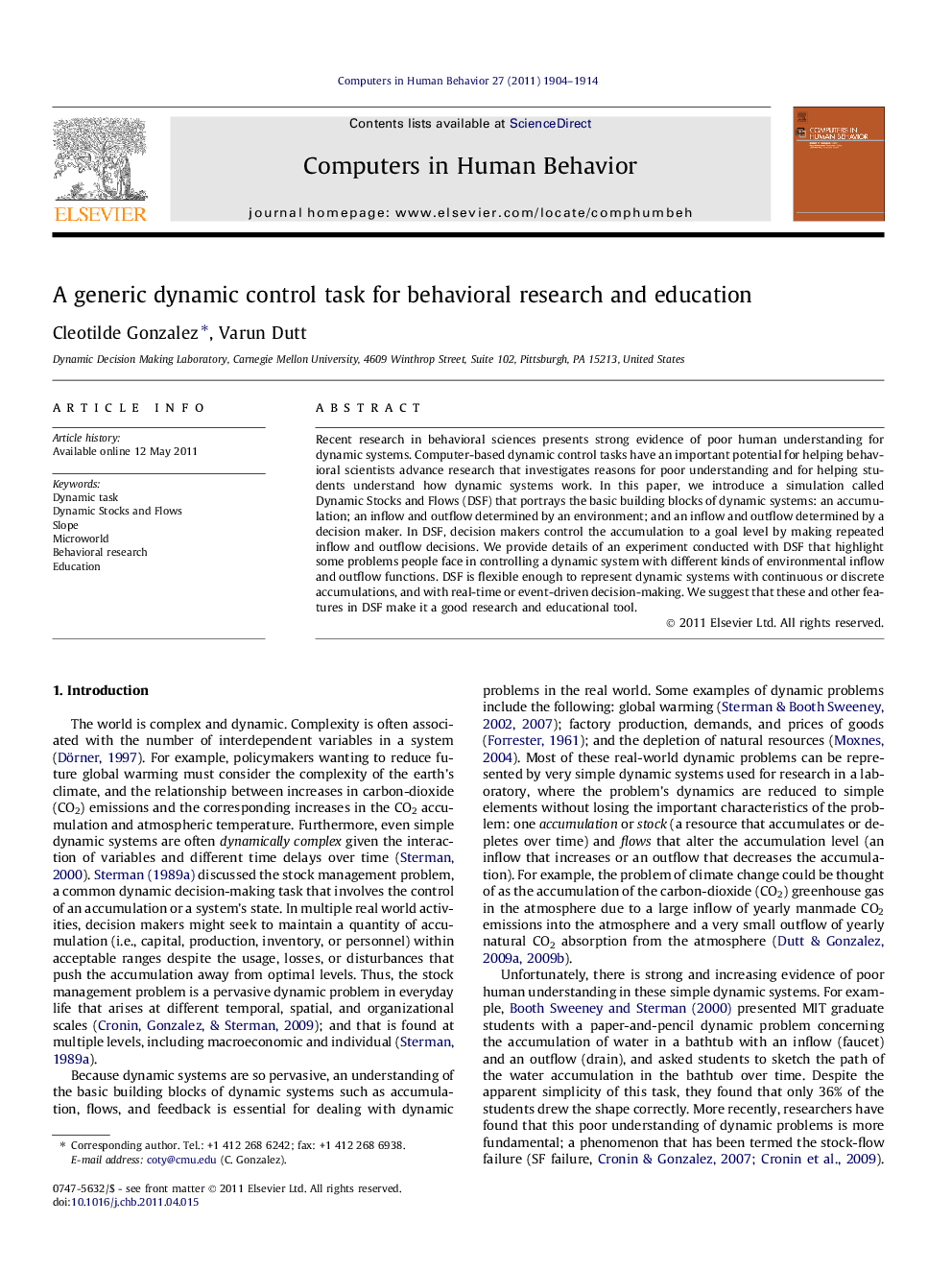| کد مقاله | کد نشریه | سال انتشار | مقاله انگلیسی | نسخه تمام متن |
|---|---|---|---|---|
| 351002 | 618461 | 2011 | 11 صفحه PDF | دانلود رایگان |

Recent research in behavioral sciences presents strong evidence of poor human understanding for dynamic systems. Computer-based dynamic control tasks have an important potential for helping behavioral scientists advance research that investigates reasons for poor understanding and for helping students understand how dynamic systems work. In this paper, we introduce a simulation called Dynamic Stocks and Flows (DSF) that portrays the basic building blocks of dynamic systems: an accumulation; an inflow and outflow determined by an environment; and an inflow and outflow determined by a decision maker. In DSF, decision makers control the accumulation to a goal level by making repeated inflow and outflow decisions. We provide details of an experiment conducted with DSF that highlight some problems people face in controlling a dynamic system with different kinds of environmental inflow and outflow functions. DSF is flexible enough to represent dynamic systems with continuous or discrete accumulations, and with real-time or event-driven decision-making. We suggest that these and other features in DSF make it a good research and educational tool.
► Dynamic Stocks and Flows portray the basic building blocks of dynamic systems.
► Participants control the accumulation to a goal through inflow and outflow decisions.
► The slope of environmental inflow function had either positive or negative slope.
► Negative slope was harder for participants to control than positive slope.
► Overall accumulation was greater in negative slope condition than positive slope.
Journal: Computers in Human Behavior - Volume 27, Issue 5, September 2011, Pages 1904–1914